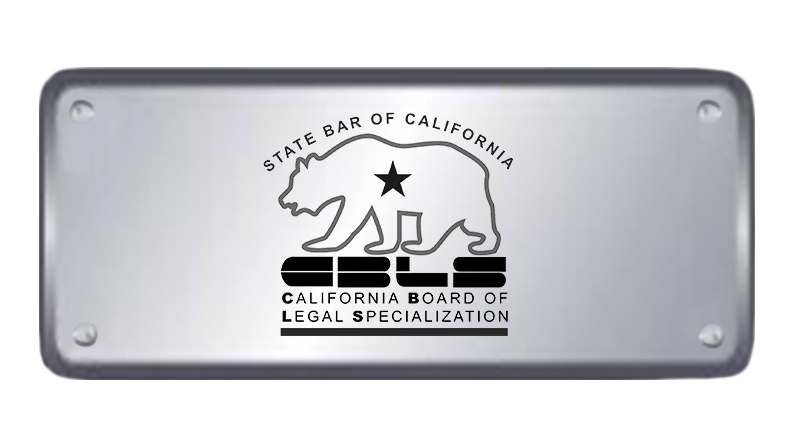PRENUPTIAL AGREEMENTS IN CALIFORNIA
A prenuptial/premarital agreement can prevent a costly and combative divorce. Prenups can get a bad rap when you are in love and planning your nuptials. However, in fact, they encourage couples to start communicating about finances and strengthen the foundation of the relationship by providing structure and stability. A prenup creates a framework for dealing with unforeseen circumstances by defining each person’s responsibilities and rights. It helps couples to communicate about their financial goals, spending habits, debts and expectations before entering into an intended lifelong commitment.
WHAT IS A PRENUP?
A prenup is a premarital agreement between two people that outlines a clear framework for how property and spousal support obligations will be treated in the event of a couple’s separation. It can also cover estate planning and probate issues. In simple terms, a prenup defines how assets and debts are allocated in the event of death or divorce. They can also define support obligations in the event of divorce.
A prenup can cover a wide range of issues, including property division, spousal support (alimony), and even the terms of a divorce. Here are some of the key provisions that are typically included in a prenup:
- Property division: A prenup can specify how property will be divided in the event of a divorce. This can include property that is acquired before or during the marriage, as well as property that is acquired through inheritance or gifts.
- Business interests: If one or both parties own a business, a prenup can specify how the business will be treated in the event of a divorce. This can include how the business will be valued and how the ownership interests will be divided.
- Debt allocation: A prenup can specify which party will be responsible for paying certain debts, such as credit card debt or student loans.
- Spousal support (alimony): A prenup can limit or eliminate spousal support obligations in the event of a divorce.
- Children: A prenup cannot determine child custody or child support, as these issues are determined based on the best interests of the child at the time of the divorce.
WHAT IF YOU DON’T GET A PRENUP?
If you do not get a prenup, then the State of California will dictate that property acquired during the marriage (community property) will be divided equally (50/50) to each party upon divorce. Separate property is defined as property owned by one party before marriage or gifted to them during the marriage (this includes inheritance). However, a community property interest in separate property (property owned before marriage) can possibly be established if one or more of the following factors exist:
- One spouse contributes money over time to a separate asset.
- One spouse contributes their time during the marriage to a separate asset.
- One spouse uses his/her credit (for a loan) during the marriage to acquire property.
- Commingling (or intertwining) separate funds or property with community property.
- Transmutation – the original separate asset changes character and becomes a community asset.
- Funds are used from the community property as a contribution toward the separate property.
Not having a prenuptial agreement could result in the need for a forensic accountant to sort out contributions, valuations and timing of purchases during the marriage, which can be a costly and lengthy process.
WHAT DOES A PRENUP DO?
Often, one party in the marriage makes more money or another party has more debt. If you know going into the marriage that one party has a tendency to overspend and incur debt, then a premarital agreement can prevent the other party from responsibility for the debt incurred. A prenup is meant to prevent disputes in the future and protect the parties as they uncouple, as illustrated in the following examples:
- Loss Of Income For Stay-At-Home Parent: You and your fiancé might agree that one party will be a stay-at-home parent. In this case, that party gives up career advancement and will have a lower income upon separation. If addressed in your premarital agreement, then the stay-at-home parent can be provided with protection and safeguards for support in the event of a divorce.
- Confidentiality: There can be confidentiality provisions provided in a prenup that prevents other parties from exposing private information upon divorce.
- Protecting Generational Wealth Or Inheritance: Prenups are also valuable when one party is entering the marriage with generational wealth or the expectation of an inheritance. By clearly defining that wealth as non-martial property, separate assets can be protected.
- Protecting A Family Business: When a spouse contributes to a family business, the lines that define separate and community property can become blurred. A business that started as separate property can become commingled as marital property without a prenup to protect the original owners. In turn, if the business goes into debt, a prenup can protect the non-owner spouse.
WHAT SHOULD YOU KNOW BEFORE SIGNING A PRENUP?
Unfair terms in a premarital agreement might not be honored by a court of law. Some examples include clauses related to a spouse’s appearance (such as losing weight), infidelity, and clauses that unfairly disenfranchises one spouse. The court is also mindful that a party may have entered into the contract under undue influence or duress. You should also be aware that a prenup will not regulate child support or child custody.
WHEN AND HOW TO GET A PRENUP?
A prenup will help set realistic and fair expectations for spending and savings habits during the marriage, as well as reducing conflict in how you spend money during a marriage. It is a good idea to complete your prenup in a solid time frame before the marriage, so that issues can be resolved, and you can focus on your special day/union. At a minimum, each party must have the final agreement in his/her possession for a full seven (7) days before the parties can sign it. Furthermore, prenups intending to waive spousal support require the party affected to be represented by counsel. Do you want the state of California to dictate your life, or do you want to be in the driver’s seat?
It is important to get separate and independent counsel to prepare and/or review the marital agreement. At Antonyan Miranda, we draft, review, and litigate prenups. It is critical that you have an experienced attorney participating and supporting you through your prenuptial agreement process. Call us at 619-696-1100 to speak with one of our Concierge attorneys or visit us at www.expertdivorcelaw.com for more information.
RESULTS. DRIVEN. ORGANIZATION.










